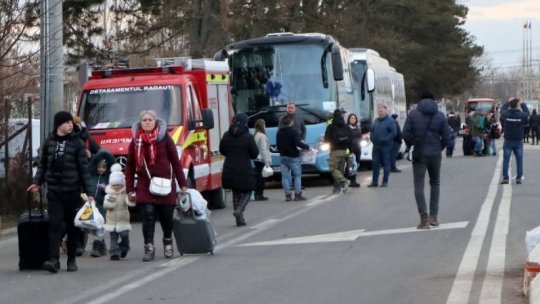Financial Press Review, 28 February
Articles from the Capital, the Bursa, the Curierul Naţional and the Ziarul Financiar.

Articol de Dinu Dragomirescu, 28 Februarie 2011, 18:46
The Capital magazine opens with an extensive article entitled 'Who is afraid of the new Labor Code?'.
'The stakes debate on the Labor Code has moved its centroid in the collective contracts field', the magazine noted .
'With the launching of the proposals to amend the Labor Code, the Government resumed the theme of reducing insurance contributions', the Capital wrote.
'Not only reducing the toll, but also the formulation of a simpler less interpretable tax legislation, excluding abuses, could shape a more flexible labor market along with the Labor Code.' The Curierul Naţional reported that the National Council of Small and Medium Sized Private Enterprises was also for the bureaucratic procedures of the labor law held on Friday. The article’s title: 'Labor Code passed. Crisis Responses are next.'
'The Alliance of Associate Employers' Confederations of Romania has submitted two sets of proposals for business recovery and hence the whole economy', the newspaper wrote, extensively presenting them.
Under the headline 'RAS: political clientelism has survived the crisis', the Bursa presents the conclusions of the last report of the Romanian Academic Society. 'Corruption remains a problem in Romania, despite the efforts of the NIA and the NAD to reduce the bold decisions which have been taken by some young prosecutors', the newspaper quoted from the report.
'Political clients have found new more subtle ways, to obtain benefits, especially by breaking the rules for public procurement or by predation in the energy sector.'
The Bursa quoted also the declaration of Emil Boc on Saturday that 'he would dismiss the President of NAFA, Sorin Blejnar, if he received a complaint from the NAD or from the Prosecutor instituting a criminal prosecution on the head of the IRS. (...) Boc’s statement come in the context in which, lately, the NATA president was accused on several occasions, both by the opposition politicians and former and current employees of the Customs that he is 'the queen' on the chessboard of the corruption in customs', the newspaper wrote.
The Curierul Naţional published an article entitled 'How Romania plans reviving agriculture', which showed that our country 'has the natural resources to feed a five times greater population than the one of 22 million citizens, but in 2008 there have been imported foods worth 6,1 billion dollars. (...) Introducing a tax on the uncultivated land will have beneficial effects on the Romanian agriculture, because it will stimulate the sale of plots, will facilitate the acquisition of more fertile areas and will lead to an increase in the production of traditional crops such as wheat and corn. (...) Agriculture and food should be the engine of Romanian economy', the newspaper wrote. Under the headline 'Who will build reactors 3 and 4 at Cernavoda?', the Curierul Naţional pointed out that 'even five years after the start of the procedures to attract investors for the project to build two units it is not yet known who will finish the construction'.
Ion Ariton, the Minister of Economy, said that it is conceivable that other state companies, in addition to Nuclearelectrica to attend the 4-billion project of reactors 3 and 4 at Cernavoda, after four of the six participating foreign groups have decided to abandon the investment', the Ziarul Financiar wrote. 'Under the original timetable, the works on the two reactors should have started last autumn, so that the project was completed by 2015.
Now, the most optimistic time for completion of this investment is the year 2017 to 2018.
Finally, the Ziarul Financiar noted that the leu has reached a new high of the last eight months against the euro on Friday, 'amid the positive feelings of international investors for the region'.
Translated by: Iulia Florescu
MA Student, MTTLC, Bucharest University













